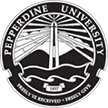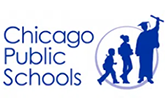CIT offers Slovene interpreters and translators with legal, medical and specialty experience, including criminal and civil matters, employee meetings, engineering, patent cases, labor disputes, immigration and more.
Although based in Los Angeles, CIT offers comprehensive Slovene language services including interpretation, translation and transcription, 24 hours a day, 7 days a week, worldwide. Our interpreters and translators are native speakers who have been screened, certified, have provided credentials, field tested, and kept up to date with developments in both English and the Slovene language through means such as lectures, conferences, and travel. CIT’s Slovene language interpreters and translators possess in depth knowledge of the Slovene language, as well as of the culture and history of the Slovene people, allowing them to provide informed and complete interpretation and translation.
The Slovene Language
The Slovene language, which is also known as Slovenian and Slovene Slovenscina is a South Slavic language spoken in Slovenia, Italy, Austria, Croatia and Hungary. About 2.5 million people worldwide speak Slovene. It is one of the 24 official languages of the European Union. It is an Indo-European language, part of the Slavic family of languages. There are several dialects of the Slovene language, such as Prekmurje and Resian. There are about 32 standardized dialects of the Slovene language. Some linguists go as far as claiming that there are even 46 dialects of the Slovene language. Slovene is very close to the Chakavian dialect of the Serbo-Croatian language.
The first-time words in Slovene were printed were in 1515 in Vienna in a poem by German mercenaries. Not much later, towards the end of the 16th century, Standard Slovene came to be, thanks to Slovene Lutheran authors who became active and popular during the Protestant Reformation. Around the 11th century, Protestants had translated the Bible and wrote certain religious passages in Slovene. In the late 1700s, there was a Roman Catholic translated version of the bible that was published. In the mid-1800s, a standard written and spoken Slovene language was widespread and being used.
The Slovene language has 21 consonants and 8 vowels. There are 6 noun cases in Slovene: nominative, accusative, genitive, dative, locative and instrumental. Nouns have three genders (feminine, masculine or neutral). Like many other European languages, the word ‘you’ has two forms: formal and informal. This is known as the T-V distinction. In French, for example, informal ‘you’ is referred to as ‘toi’ whereas formal ‘you’ is referred to as ‘vous,’ thus the T-V distinction.
The Slovene alphabet is written in the Latin (Roman) characters.
Fun Facts about Slovenia


No matter what your needs may be, we can and are ready to assist you now. We have translators and interpreters standing by 24/7.

CIT's interpreter is such a rockstar, and it’s so great to have him as a lead interpreter for our Board meetings. About Our Interpreters 
Thank you for always being able to handle emergency interpreting assignments with ease. About Urgent Requests 
Thank you for always being able to handle emergency interpreting assignments with ease. About Urgent Requests 
Your translation rates are more competitive than other language service providers I used in the past. About Pricing 

Professionalism matters at CIT. We respond to request inside 24 hours.







